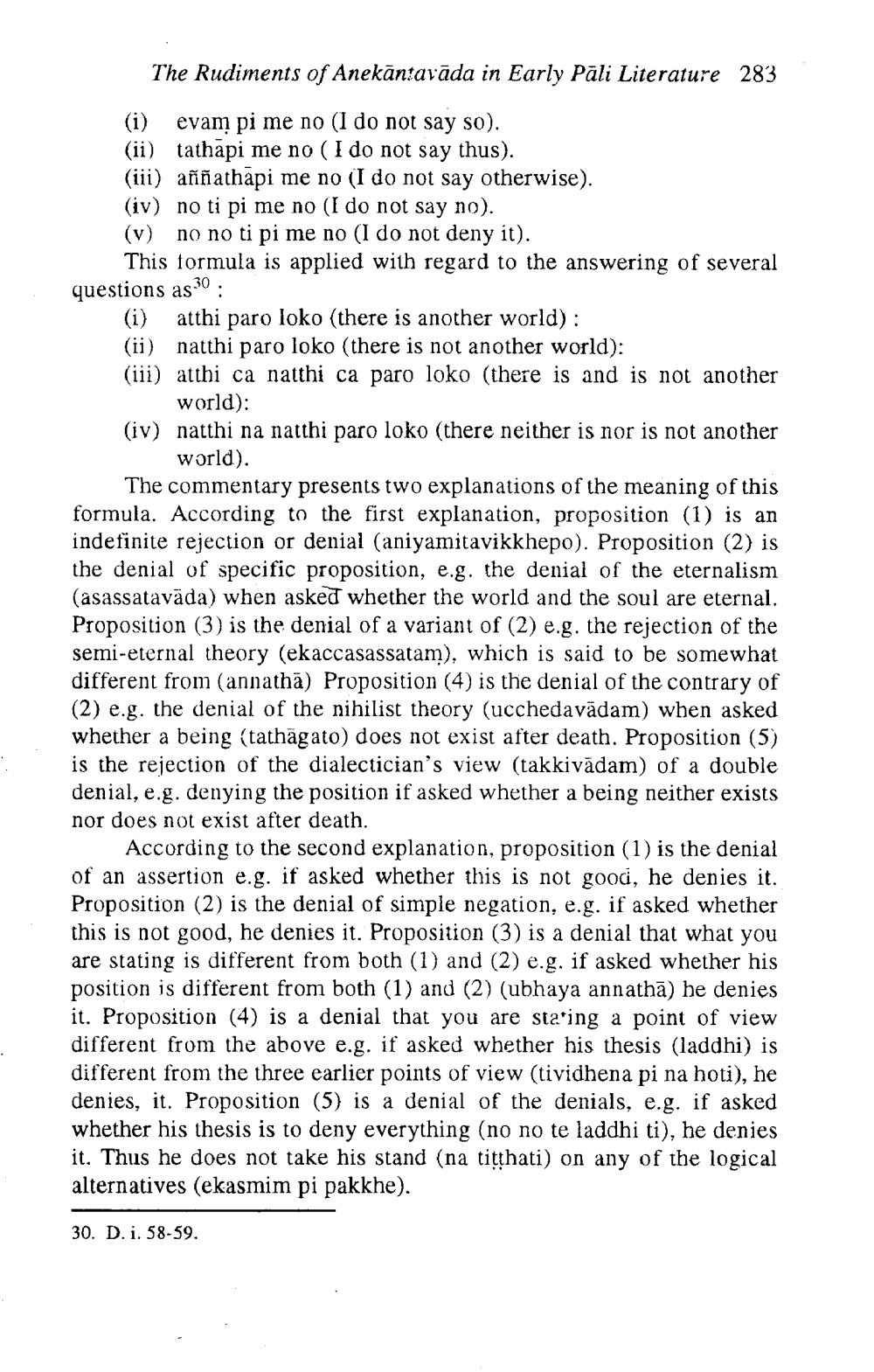________________
The Rudiments of Anekāntavāda in Early Pāli Literature 283
(i) evam pi me no (I do not say so). (ii) tathapi me no (I do not say thus). (iii) aññathāpi me no (I do not say otherwise). (iv) no ti pi me no (I do not say no). (v) no no ti pi me no (I do not deny it).
This formula is applied with regard to the answering of several questions as 30 :
(i) atthi paro loko (there is another world): (ii) natthi paro loko (there is not another world): (iii) atthi ca natthi ca paro loko (there is and is not another
world): (iv) natthi na natthi paro loko (there neither is nor is not another
world). The commentary presents two explanations of the meaning of this formula. According to the first explanation, proposition (1) is an indefinite rejection or denial (aniyamitavikkhepo). Proposition (2) is the denial of specific proposition, e.g. the denial of the eternalism (asassatavāda) when asked whether the world and the soul are eternal. Proposition (3) is the denial of a variant of (2) e.g. the rejection of the semi-eternal theory (ekaccasassatam), which is said to be somewhat different from (annathā) Proposition (4) is the denial of the contrary of (2) e.g. the denial of the nihilist theory (ucchedavādam) when asked whether a being (tathāgato) does not exist after death. Proposition (5) is the rejection of the dialectician's view (takkivādam) of a double denial, e.g. denying the position if asked whether a being neither exists nor does not exist after death.
According to the second explanation, proposition (1) is the denial of an assertion e.g. if asked whether this is not good, he denies it. Proposition (2) is the denial of simple negation, e.g. if asked whether this is not good, he denies it. Proposition (3) is a denial that what you are stating is different from both (1) and (2) e.g. if asked whether his position is different from both (1) and (2) (ubhaya annathā) he denies it. Proposition (4) is a denial that you are stating a point of view different from the above e.g. if asked whether his thesis (laddhi) is different from the three earlier points of view (tividhena pi na hoti), he denies, it. Proposition (5) is a denial of the denials, e.g. if asked whether his thesis is to deny everything (no no te laddhi ti), he denies it. Thus he does not take his stand (na titthati) on any of the logical alternatives (ekasmim pi pakkhe).
30. D. i. 58-59.




